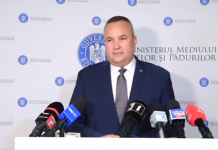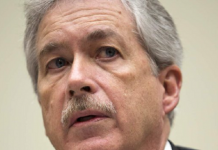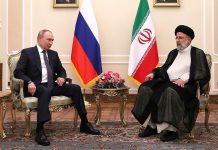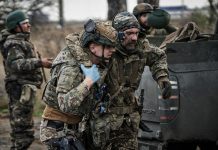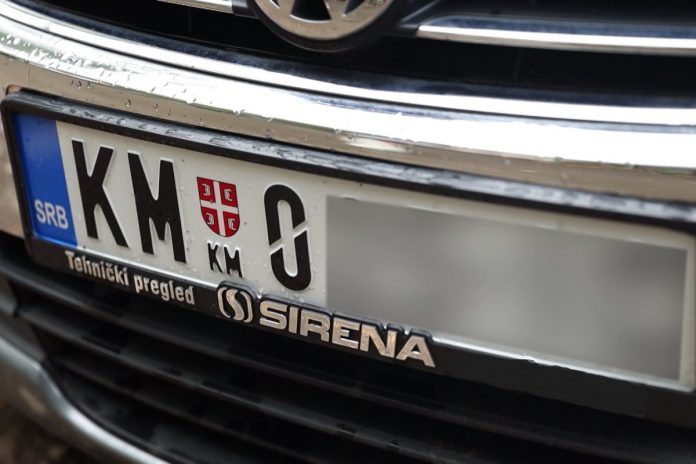Albanian-dominated Kosovo thought Serbia’s borders were not sacrosanct; Serb-dominated Northern Kosovo thinks Kosovo’s borders are not sacrosanct
There is something about the current unrest in Kosovo that flies below both the radar of the media and the longtime zeitgeist in the West: the Serbs have a point.
When the Kosovo province of Serbia wanted to break away in the 1990s, it was applying a principle that viewed established borders as not sacrosanct. In this case, this referred to the internal borders of the former Yugoslavia, which were inherited by the republics that emerged from the Balkan meltdown as countries (exactly as the Soviet republics became post-Soviet countries like Russia and Ukraine).
Kosovo’s people overwhelmingly wanted this because most of them weren’t Serbian (but rather Albanian). Moreover, Serbia was at the time feverishly fighting a series of costly ethnic wars that had nothing to do with Kosovars’ ambitions or interests.
Serbia, interestingly, was a little ahead of its patron Russia, whose own similar misbehaviors are in the news today.
Laying claim to heavily Serbian-populated regions of the neighboring republics, as Russia later did in Georgia’s South Ossetia and now in parts (or most) of Ukraine, was not completely unreasonable — because the internal borders of empires were oftentimes random if not malicious.
But both Russia and Serbia went about this project in the same ham-handed, criminal and ultimately inhuman way: through underhanded fomenting of local unrest, overt aggression, and ultimately war crimes like the massacres at Srebrenica (1995) and Bucha (2022).
So the West supported Kosovo, waging a harsh bombing campaign against Belgrade itself, in 1998-1999, which was aimed at getting Serbia to let Kosovo float away. That ended with thousands of NATO troops in Kosovo.
The ringleaders of Serbia’s crimes in Bosnia especially – Slobodan Milosevic and Radovan Karadzic – were captured and prosecuted in the Hague; Russia, a nuclear power, is getting off easier so far with its bestial actions in Ukraine.
The fact that the leaders of these countries chose barbarous means doesn’t mean all the goals were completely wrong.
After the 1648 Peace of Westphalia (which determined the primacy of states in the world order) and the 19th century rise of the nation state (which viewed the modern polity as featuring commonality between citizens — as opposed to the situation in the multinational empires they replaced), there is a logic to ethnic cohesion.
That is the very logic by which progressives urge Israel to abandon strategically valuable land in the West Bank (and I am among them): because homogeneity (and perhaps the right to self-determination) prevail over stability and even security.
Interestingly, Serbia’s defenders invoke a related analogy, arguing Kosovo is their Jerusalem: the 1389 Battle of Kosovo in which Serbs fought Ottoman invaders is where the nation was in some way forged. But a better comparison may be Hebron: its bona fides go back further than Jerusalem, yet it so deep inside hostile territory, and so full of other people, that Israel must simply walk away.
Which brings us to Kosovo today. Having declared independence in 2008, it has won the recognition of most of the West but not most of the world. Not everyone loves a separatist, including some countries in the European Union with potential separatist regions of their own – most notably Spain.
Serbia doesn’t recognize Kosovo either, but has largely given up the ghost. There are thousands of NATO peacekeepers in Kosovo and Serbia’s not about to invade. Its leadership, despite a nationalist past, is now mostly concerned about joining the European Union and reaping the economic benefits thereof. And that is no surprise: Serbia’s per capita GDP, near the poverty level, is about half of neighboring Croatia’s.
But all bets are off when it comes to the northern bit of Kosovo across the Iber River, adjoining Serbia and north of the town of Mitrovica. Its roughly 50,000 people are overwhelming Serb. It’s not many people and not vast territory (its 1,000 square kilometers are less than a tenth of Kosovo) — but this is the focus on the current dispute: Serbia wanted to issue license plates for the municipalities there (and not for anywhere else in Kosovo), and the government in Pristina is scandalized.
In a more logical world, a grand bargain would seem obvious:
- Kosovo cedes Northern Kosovo to Serbia;
- Kosovo grants Serbia custodianship over Orthodox monasteries and heritage sites throughout its territory;
- In return, a grateful Serbia recognizes Kosovo and invites the remaining EU holdouts to do the same;
- Both Kosovo and Serbia are fast-tracked to EU membership, ensuring freedom of movement for goods, capital and people not only between them but to the vast market of the EU;
- Everyone is happier and richer (except for Vladimir Putin), everyone can move around freely, and Europe gains a bit of badly needed mojo (of course, Hungary’s difficult Viktor Orban would have to be bribed).
And as an intangible bonus, Kosovo would gain the good karma of not being hypocrites. They once wanted out of Serbia, and others now want out of Kosovo; what goes around comes around, and that’s basically just fine. There may be no immediate benefit to understanding this, except for two subtle little things: understanding the other builds character, and justice is its own reward.




